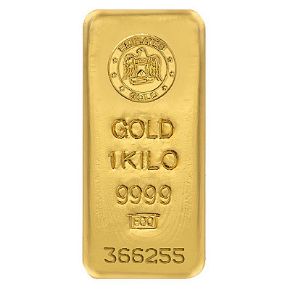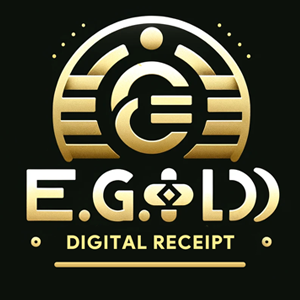
When Does Converting Crypto to Gold Trigger Capital Gains?
The convergence of cryptocurrencies and precious metals like gold has created new opportunities for investors to diversify their portfolios. Converting cryptocurrency, such as Bitcoin or Ethereum, into physical gold or gold-backed assets is an increasingly popular strategy for those seeking to hedge against volatility or preserve wealth. However, this process can have significant tax implications, particularly regarding capital gains taxes. Understanding when converting crypto to gold triggers a capital gains event is crucial for staying compliant and avoiding unexpected tax liabilities. This article explores the mechanics of crypto-to-gold conversions, the tax rules that apply, and key considerations to help you navigate this financial maneuver.
The Basics of Capital Gains and Cryptocurrency
In many countries, cryptocurrencies are treated as property for tax purposes, not as currency. This classification means that any transaction involving the sale, exchange, or disposal of cryptocurrency can potentially trigger a capital gains event. A capital gains tax is levied on the profit made from selling or exchanging an asset for more than its original purchase price (or "cost basis"). For cryptocurrencies, this applies whether you’re trading Bitcoin for dollars, another crypto, or, in this case, physical gold.
When you convert cryptocurrency to gold, you’re essentially disposing of one asset (the crypto) to acquire another (gold). Tax authorities in jurisdictions like the United States, Canada, and many European countries view this as a taxable event because it involves exchanging property for something of value. The key question is whether the transaction results in a gain or loss, which depends on the value of the cryptocurrency at the time of the conversion compared to its cost basis.
When Does Converting Crypto to Gold Trigger Capital Gains?
Converting cryptocurrency to gold typically triggers a capital gains event under the following circumstances:
- Direct Exchange for Physical Gold: If you use cryptocurrency to purchase gold bars or coins from a dealer, the transaction is considered a sale of the cryptocurrency. The fair market value of the gold at the time of the transaction determines the value of the crypto disposed of. If this value exceeds the cost basis of your cryptocurrency (what you paid for it, including fees), you realize a capital gain. For example, if you bought 1 BTC for $20,000 and later use it to buy gold worth $60,000, you’d face a taxable capital gain of $40,000.
- Trading Crypto for Gold-Backed Tokens: Some investors convert crypto into gold-backed digital assets, such as tokenized gold (digital tokens pegged to physical gold stored in vaults). This exchange is also a taxable event because you’re trading one asset (crypto) for another (gold-backed tokens). The gain or loss is calculated based on the market value of the tokenized gold at the time of the trade compared to the crypto’s cost basis.
- Using Crypto on Platforms That Facilitate Gold Purchases: Many platforms allow users to buy gold with cryptocurrency through integrated exchanges. Even if the platform handles the conversion seamlessly (e.g., converting BTC to USD internally before purchasing gold), the crypto-to-fiat or crypto-to-gold step is considered a disposal and triggers a capital gains calculation.
- Barter Transactions: In some cases, investors may directly barter cryptocurrency for physical gold with another party. This is still a taxable event, as tax authorities require you to report the fair market value of the gold received as the proceeds of the crypto disposal. The gain is the difference between this value and the crypto’s cost basis.
Exceptions and Nuances
While most crypto-to-gold conversions trigger capital gains, there are nuances to consider:
- No Gain, No Tax: If the value of the cryptocurrency at the time of conversion is less than or equal to its cost basis, you may not owe capital gains tax. In fact, you could report a capital loss, which might offset other taxable gains. For instance, if you bought 1 ETH for $3,000 and convert it to gold worth $2,500, you’d report a $500 capital loss.
- Like-Kind Exchanges (Not Applicable): In the past, some investors argued that crypto-to-gold swaps could qualify as "like-kind exchanges" (tax-deferred swaps of similar assets). However, most jurisdictions, including the U.S., clarified that cryptocurrencies do not qualify for like-kind exchange treatment after 2018, meaning these transactions are fully taxable.
- Jurisdictional Variations: Tax rules vary by country. In the U.S., the IRS explicitly treats crypto-to-gold conversions as taxable events. In contrast, some countries with less developed crypto tax frameworks may not explicitly address such transactions, but they often default to treating crypto as property or an asset, triggering similar tax obligations. Always check local regulations.
Calculating Capital Gains
To determine whether a capital gains tax applies when converting crypto to gold, follow these steps:
- Determine the Cost Basis: This is the amount you paid for the cryptocurrency, including any transaction fees or associated costs. For example, if you bought 0.5 BTC for $10,000 plus $100 in fees, your cost basis is $10,100.
- Assess the Fair Market Value: At the time of the conversion, calculate the market value of the cryptocurrency (or the gold received) in your local currency. For instance, if 0.5 BTC is worth $30,000 when you buy gold, that’s the value of the transaction.
- Calculate the Gain or Loss: Subtract the cost basis from the fair market value. In the above example, $30,000 - $10,100 = $19,900 taxable capital gain.
- Classify the Gain: Capital gains are typically classified as short-term (held for one year or less) or long-term (held for more than one year), with different tax rates applying. In the U.S., short-term gains are taxed as ordinary income (up to 37%), while long-term gains have lower rates (0-20%, depending on income).
- Report the Transaction: Most tax authorities require you to report each taxable event. In the U.S., this is done on IRS Form 8949 and Schedule D, detailing the date, cost basis, sale price, and gain or loss.
Practical Considerations to Minimize Tax Liabilities
While capital gains taxes are often unavoidable, you can take steps to manage your tax burden when converting crypto to gold:
- Track Your Cost Basis Meticulously: Maintain detailed records of every cryptocurrency purchase, including dates, amounts, and fees. Tools like crypto tax software can automate this process and ensure accurate reporting.
- Time Your Conversions: If possible, hold your cryptocurrency for more than a year to qualify for lower long-term capital gains rates. Monitor market conditions to convert during periods of lower crypto value to minimize taxable gains.
- Use Stablecoins for Stability: Converting volatile cryptocurrencies like Bitcoin to stablecoins (e.g., USDT or USDC) before buying gold can reduce exposure to price swings, potentially lowering the taxable gain if the stablecoin’s value aligns closely with the cost basis.
- Consult a Tax Professional: Tax rules for crypto and gold are complex and vary by jurisdiction. A professional can help you navigate local regulations, optimize your strategy, and ensure compliance.
- Consider Tax-Advantaged Accounts: In some countries, holding crypto or gold in tax-advantaged accounts like IRAs (in the U.S.) may defer or eliminate capital gains taxes. However, this requires careful setup with compliant custodians.
Additional Tax Considerations for Gold Ownership
Beyond the crypto conversion, owning physical gold may carry additional tax obligations. In some jurisdictions, purchasing gold triggers sales tax or value-added tax (VAT), though exemptions often apply for investment-grade bullion. Additionally, selling or disposing of the gold later (e.g., for fiat or another asset) could trigger another capital gains event. Keep records of the gold’s purchase price and any associated costs to accurately calculate future gains or losses.
Converting cryptocurrency to gold is a strategic way to diversify your investments, blending the innovation of digital assets with the stability of precious metals. However, this process almost always triggers a capital gains tax in jurisdictions where cryptocurrencies are treated as property, as the conversion is considered a disposal of the crypto. By understanding the tax implications, tracking your cost basis, and planning your transactions carefully, you can minimize surprises and stay compliant with tax authorities. Always consult with a tax professional and stay informed about local regulations to navigate the complexities of crypto-to-gold conversions confidently. With the right approach, you can leverage this financial strategy to build a resilient portfolio while managing your tax obligations effectively.
NOTE
This Content is the copyrighted content of EE.GOLD. All rights are reserved. You are welcome to share or use our content only by including direct links to our website. Any other form of reproduction, distribution, or use without proper attribution is strictly prohibited.
This Content is intended solely for educational purposes. The information provided does not constitute financial or investment advice.
Please note that Digital Storage Receipt, Secure Storage Solutions, and Physical Gold Sales are the only services offered by EE.GOLD.
We strictly adhere to government regulations and are firmly against all illegal financial or investment activities globally.
For further inquiries, feel free to contact us through our official channels.










.png)

